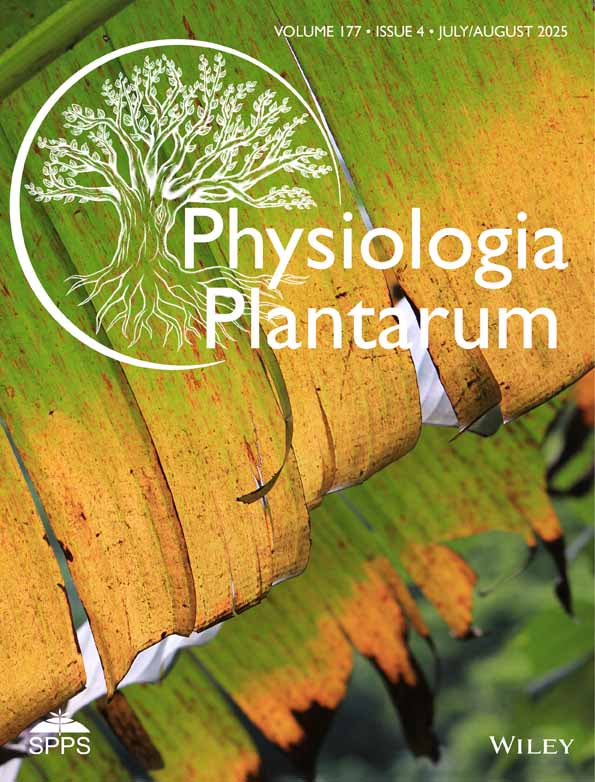Purification and characterization of β-amylase from leaves of potato (Solanum tuberosum)
Abstract
Amylolytic activity is widely distributed in plants. In potato leaves (Solanum tuberosum L.) the abundant amylolytic activity was found to be β-amylase (EC 3.2.1.2, a-1,4-D-glucan maltohydrolase). β-Amylase from potato leaves was purified to homogeneity for study of enzyme characteristics. The purification steps included ammonium sulphate precipitation, anion exchange chromatography, affinity chromatography and gel filtration. The end product of α-1,4-glucan degradation was maltose. The protein is a 111-kDa homo-dimer with a subunit molecular mass of 56 kDa and a pl of 5.6. The pH-optimum is 6.5 using p-nitrophenylmaltopentaoside (PNPG5) as substrate. The optimal temperature for hydrolysis is at 40°C. The enzyme is unstable at temperatures above 40°C. The Knt-value for PNPG5 is 0.73 mM and the activity is inhibited by cyclodextrins. At a concentration of 1 mM, β-cyclodextrin is a stronger inhibitor than α-cyclodextrin (68 and 20% inhibition, respectively). Branched glucans (e.g. starch and amylopectin) are superior substrates as compared to long, essentially unbranched glucans (e.g. amylose). This study of the catalytic properties of β-amylase from potato leaves indicates the importance of β-amylase as a starch degrading enzyme.
Abbreviations
-
- BPNPG7
-
- blocked p-nitrophenylmaltoheptaoside
-
- PNPG5
-
- p-nitrophenylmaltopentaoside




